Doctor of Nursing Practice Graduates Class of 2021
We are excited to announce over 100 Doctor of Nursing Practice graduates have presented their projects and completed their program during a challenging year.
We are extremely proud of you, your resilience and accomplishments. We look forward to your future endeavors and your impact on your communities.
Below are a few of our graduate spotlights:
Bridgett Chandler
Degree: Doctor of Nursing Practice ’21 Track: Family Nurse Practitioner Program
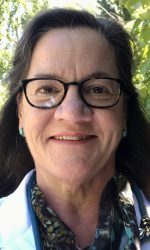
Bridgett Chandler
Why did you decide to pursue a DNP degree? In 2015, I left my career as CEO to pursue a dream to serve people 1:1. I had devoted most of my career to strengthening our community at the system level, in public, private and non-profit sectors. My heart has always been drawn to children’s well-being, and I was serving as the Executive Director of Communications for Seattle Public Schools (SPS) when my beloved late husband suffered debilitating brain aneurysms. The difference nurses and nurse practitioners made in our family’s life over the four years that we hoped for a recovery that did not come made a lasting impression in my heart. When he died, I decided that my days as an executive in large and complex organizations were over – I needed to be more available to my elementary aged child and work in environments where change seemed more in reach. The smaller non-profit and private organizations that I led championed causes I truly believe in. But the spark of the idea inspired by the care my husband received had grown into a flame. I decided to leave my executive career and go back to school to become a nurse practitioner.
What was your final project? How did it make an impact on the community or with the community partner?
Title: Protecting Public Health and Preventing School Exclusion: A Case Study of Seattle Public Schools’ 2019-20 Immunization Campaign
Seattle Public Schools (SPS) is the largest and most diverse district in the State. Vaccine laws were updated due to heightened concerns about disease outbreaks due to loss of immunity resulting from people not getting themselves and their children vaccinated. SPS undertook an intensive district-wide campaign to promote immunization and update records of 53,000 students. My DNP project was to advance SPS’s goal of understanding the elements of success, examine the 3% of students who are either missing vaccines or missing records on vaccines received and/or exemptions, and recommend strategies for reaching this 3% of families and students. Practice inquiry demonstrated that SPSP school nurses’ practice is evidence-based, nurses know their students and families, and their observations about risk factors for vaccine non-adherence are supported by the data. Working with families and community partners, nurses achieved a 97% success rate in protecting student and community health from dangerous vaccine-preventable diseases, and also preventing school exclusion for students whose vaccine records are not up to date. The 3% of students who are not up to date are overwhelmingly from the Black, Indigenous, and People of Color communities. While all students in all groups are improving, students from African American, Hispanic, and Pacific Islander communities are not catching up as fast as their peers. I recommend that SPS place its emphasis on serving those students furthest from social and health justice and embrace a “Nothing about us without us” mindset in deepening partnerships with religious and cultural groups.
What are your plans after graduation? Complete my UW Graduate Palliative Care certificate program, pass my boards, fly fish a lot, and join an outstanding Family Practice
Any advice for future DNP students? Keep in mind why you sought out to be a DNP. Update that list of reasons frequently with all of the experiences that confirm you took this risk for good reasons. Trust in the UW program, collaborate like crazy with your peers, and make the absolute most you can of each clinical experience.
Pam DeKeyser
Degrees: Doctor of Nursing Practice ’21 Track: Psychiatric Mental Health Nurse Practitioner
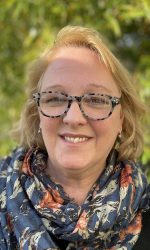
Pam DeKeyser
Why did you decide to pursue a DNP degree? I have been a nurse practitioner for several years and had worked with students as a preceptor. I wanted to enhance and update my knowledge and potentially be in a position to teach. I made the decision to go back to school to obtain my doctorate degree. When I thought about enhancing my knowledge and the population I’d like to work with, I kept coming back to mental health and how I’ve seen it impact my patients in the primary care setting. I work with patients with diabetes and other chronic conditions and have noticed that if they struggle with depression or anxiety for example, it’s even more challenging for them to engage in regular self-care. I decided to add psychiatric mental health training to augment my overall practice.
What was your final project? How did it make an impact on the community or with the community partner? My final DNP Capstone project involved developing tools (prescribing algorithms) for the pharmacologic management of chronic nociplastic pain in the incarcerated population. I partnered with the Washington State Department of Corrections (WADOC) and developed nine specific chronic nociplastic condition algorithms. The algorithms were tailored for the incarcerated population based on feedback from a WADOC clinical team and University of Washington expert pain management consultant during regular meetings with the WADOC. The pharmacologic management of chronic pain is part of a larger chronic pain management initiative that the WADOC is undertaking. Nociplastic pain is a category of pain in addition to nociceptive and neuropathic pain and is “pain despite no clear tissue damage or lesions within the somatosensory system.” Nociplastic pain in particular is comorbid with psychiatric conditions such as depression, anxiety disorders, post-traumatic stress disorder and substance use disorder. The project dovetailed well with my primary care background and my current scholarly endeavors.
What are your plans after graduation? I plan to take a little time to do some self-care after balancing work, full time graduate studies and life for the past three years. I’m looking forward to little things like day trips with my husband, spending time with my young adult children and walks with our COVID puppy (now 1 year old). When it’s safe, I hope to take some time to travel to visit my family and friends. During this “down time”, I will study and take boards and then I’d like to try and find a job as a psychiatric mental health DNP working with a vulnerable population. I believe that it’s helpful as a new provider to have support and be in an environment that provides mentoring and promotes professional growth and I hope to find a first job that provides me those opportunities. Eventually, I’d like to be able to merge my nursing experiences into an integrative type of setting (behavioral health within primary care possibly). I am also interested in teaching within a school of nursing after a little experience as a PMHDNP under my belt.
Any advice for future DNP students? Wow, I think I would say, hang in there and keep everything in perspective. There may be times when you doubt whether the hard work is worth it (it is!). It’s normal to feel overwhelmed at times, just remember that your colleagues are there for you and the faculty/staff are very approachable and understanding. Balance is key. Take inventory of what’s important to you and find ways to continue to do the things that bring you happiness, whether it’s family time, hiking, or keeping up with your book club. If it’s been a while since you were last in school, the technology piece can be a learning curve. I made appointments with the health science librarians and checked out a lot of on-line resources to bridge the gap. I kept telling myself, “it’s all part of the experience.” Lastly, time really does fly. It’s hard to believe that three years have gone by. I have been very fortunate to get to know the other students in my cohort (they are all wonderful people and will be excellent consults for me in the future) and my professors have been incredible. I’m looking forward to the next stage but will look back at my time in the DNP program with fondness.
Emma Dotson
Degree: Doctor of Nursing Practice ’21 Track: Primary Care Nurse Practitioner
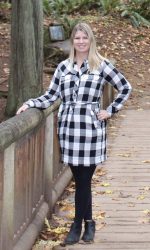
Emma Dotson
Babette Hairston
Degrees: BSN ’05; Doctor of Nursing Practice ’21 Track: Adult-Gerontology Primary Care Nurse Practitioner
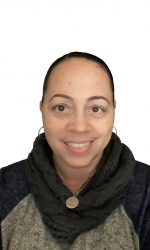
Babette Hairston
Why did you decide to pursue a DNP degree? I am a first-generation college student and want to change the trajectory of my family history. I want to have a greater impact on the health of my community, specifically the African American community; underrepresented, disadvantaged, and underserved. I want to be and positive influence in the lives of my patients.
What was your final project? I worked with the Adult Medicine Clinic at Harborview Medical Center on their peer navigation hypertension pilot program which was implemented to improve blood pressure outcomes for African American patients with uncontrolled hypertension. My primary role was to complete a thematic analysis of focus group transcripts and make recommendations for revision of the program based on focus group feedback.
How did it make an impact on the community or with the community partner? Thematic analysis of focus group feedback revealed that the African American community is an authority on local resources that can improve health and they also confirmed known facilitators and barriers to blood pressure management (that have been discussed in previous publications). The outcomes of the thematic analysis offered insight into whether my organization was on the track with the pilot implementation. Ultimate outcomes for the impact on blood pressure are yet to be determined. The pilot program is being funded by a 2-year grant that has been extended for an additional 2 years (being the pilot program was altered due to the COVID 19 pandemic).
What are your plans after graduation? I plan to work in a primary care setting, preferably with my current employer.
Any advice for future DNP students? Make connections with other students (even if you’re a true introvert like me). Seek faculty feedback. Be flexible. Be prepared for frustration; it will be ok.
Samy Kunze-Garcia
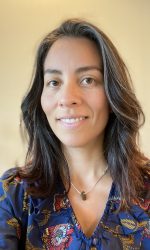
Samy Kunze-Garcia
Degrees: ABSN ’16; Doctor of Nursing Practice ’21 Track: Pediatric Primary Care
Why did you decide to pursue a DNP degree? As a person from an underrepresented group, I felt in the need to not only obtain higher nursing scope, but also increase the Latinx representation in positions of leadership. I became a DNP, so I and the families I work with, can make better health care decisions for the children we care so much about.
What was your final project? How did it make an impact on the community or with the community partner? My final project sought to evaluate the perception of family centered-care in Spanish-speaking families who attended a telehealth visit at a pediatric clinic. This was the first time the agency assessed family-centered care in the Spanish-speaking community. My project gave light to several areas for improvement in the care of Spanish-speaking families.
What are your plans after graduation? Celebrate the end of graduate school and take time off to enjoy the spring and summer. Begin my new job as a Pediatric Nurse Practitioner at Seattle Children’s Odessa Brown Children’s Clinic
Any advice for future DNP students? Three years go by quickly! If your family or you are immigrants or come from a diverse background, Nursing needs you. Nursing is the only health care career path that you can take in short, more affordable steps and still be in the same field. Our community needs you!
Aloni Le
Degree: Doctor of Nursing Practice ’21 Track: Family Nurse Practitioner
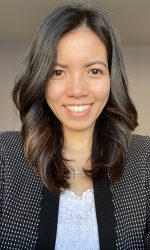
Aloni Le
Why did you decide to pursue a DNP degree? The DNP not only teaches theory and research but also concentrates on how to apply research into practice which is the most crucial step to improve patient’s health outcomes in clinical practice. The tripartite role of the DNP are advanced practice, leadership, and practice inquiry. Gaining those skills is important for me personally and professionally.
What was your final project? How did it make an impact on the community or with the community partner? Project title: Creating Electronic Primary Care Diagnostic Tool for Acute Musculoskeletal Injuries for the Upper Extremities. The purpose of the Doctor of Nursing Practice (DNP) project was to create electronic clinical tools in the Epic system at Confluence Health (CH) in North Central Washington that would help to expedite accurate and timely diagnostic decision-making in acute orthopedic injuries. Most providers at CH think that the tool will be a very helpful resource to improve the diagnosis of orthopedic injuries which ultimately enhance patient’s health outcomes in rural communities.
What are your plans after graduation? My plan after graduation is to work as a nurse practitioner in a family practice clinic or urgent care clinic for a few years and eventually become a certified nurse practitioner in a specialty.
Any advice for future DNP students? My advice for future DNP students is to start the program with enthusiasm, determination, commitment and curiosity. Get ready to see a huge growth of knowledge and professionalism within the next 3 years. Don’t forget to have fun and celebrate your achievements along the way!
Chan Ly
Degrees: BSN ’18; Doctor of Nursing Practice ’21 Track: Adult Gerontology Acute Care Nurse Practitioner
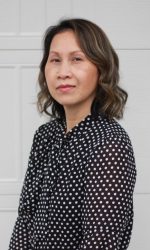
Chan Ly
Why did you decide to pursue a DNP degree? I decided to pursue the DNP degree because of my commitment to lifelong learning and I truly believe evidence-based practice enhances positive patient outcomes by avoiding overtreatment and undertreatment. Moreover, I believe the DNP role would allow me a unique opportunity to meaningfully contribute locally, nationally, and/or globally in enhancing patient’s overall health status.
What was your final project? How did it make an impact on the community or with the community partner? My capstone project focused on how to improve the advance care planning (ACP) process for hospitalists within an acute care hospital in Seattle. When ACP is not readily available at the point-of-care there is the potential for confusion and miscommunication between staff and families, and discordant end-of-life (EOL) care. Hospitalists admit patients to the hospital. Thus, this process allows an optimal opportunity for hospitalists to review/initiate ACP to ensure continuity of care and concordant EOL care. I believe my project would make an impact on the community by enhancing the quality and concordant EOL care for individuals requiring EOL care.
-
Foglia MB, Lowery J, Sharpe VA, Tompkins P, Fox E. A Comprehensive Approach to Eliciting, Documenting, and Honoring Patient Wishes for Care Near the End of Life: The Veterans Health Administration’s Life-Sustaining Treatment Decisions Initiative. The Joint Commission Journal on Quality and Patient Safety. 2019;45(1):47-56. doi:https://doi.org/10.1016/j.jcjq.2018.04.007
What are your plans after graduation? I plan to apply to the Seattle Cancer Care Alliance, Advanced Practice Provider Fellowship for oncology & bone marrow transplant. I will select the medical oncology track of this fellowship because the specialty intrigues me. Patients with cancer have always inspired me and fueled my passion for oncology. I am an Oncology Certified Nurse with 8.7 years of medical oncology experience. My future professional goal is to become an oncology nurse practitioner serving adult medical oncology patients, both inpatient and outpatient settings. I would like to obtain my Advanced Oncology Certified Nurse Practitioner certification within 2 years of working in an oncology setting.
Any advice for future DNP students? Review the epidemiology, pathophysiology, pharmacology, and treatment plans for one disease process once a week to prepare for your clinical rotation. Doing so will truly enhance your knowledge, confidence, competence, and clinical experience. My wise and amazing faculty clinical advisor told me of this advice.
Liam Malpass
Degree: Doctor of Nursing Practice ’21 Track: Family Nurse Practitioner
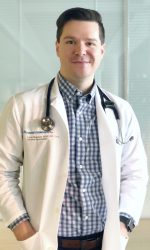
Liam Malpass
Why did you decide to pursue a DNP degree? I chose to pursue a DNP degree to prepare myself with knowledge, skills, and experience to become a transformative leader in creating a more equitable health care system. Combining advance practice with expertise in research translation and interprofessional influence, the DNP degree allows me to pursue the joy of clinical practice with the ability to guide systems-level change.
What was your final project? How did it make an impact on the community or with the community partner?
My DNP project examined the experiences of providers using telehealth during the pandemic to care for older adults across a variety of settings, especially those in nursing homes. My work helped to establish evidence-based best practices for using telehealth within the geriatric population and adapt these to leverage facilitators and overcome barriers specific to the teams with whom I collaborated. This project contributed improvements in care quality and accessibility, enhancing care for our aging population.
What are your plans after graduation?
I’m looking forward to launching my career as a nurse practitioner, continuing to build my clinical acumen whilst increasing my influence as a health leader. I am particularly interested in community based health programs that focus on the integration social and clinical wellness.
Any advice for future DNP students?
The UW’s DNP program is exceptional opportunity accelerate your learning and capabilities as a healthcare leader. Take time to discover your interests and passion during your time in the program and pursue every opportunity to live these throughout your academic experience.
Kristine McGlennen
Degrees: Doctor of Nursing Practice ’21 Track: Adult Gerontology Acute Care Nurse Practitioner
Why did you decide to pursue a DNP degree? Throughout my nursing career, I have remained dedicated to improving patient outcomes through participation in education, committee work and quality improvement initiatives. As such, pursuing a DNP was a natural choice for me, as this education will elevate my practice and standard of care.
What was your final project? How did it make an impact on the community or with the community partner? My final project was a retrospective quality improvement study which investigated Harborview Medical Center’s adherence to a novel Blunt Cerebrovascular Injury (BCVI) protocol. Secondary aims included an assessment of the impact of the BCVI protocol on patient outcomes, specifically, stroke occurrence. This project, which is ongoing, has the potential to improve patient outcomes and guide internal quality improvement initiatives.
What are your plans after graduation? I look forward to supporting the treatment and recovery of critically ill patients in the Seattle area as a doctorally-prepared critical care Nurse Practitioner.
Any advice for future DNP students? Three academic years sounds like a long time, but it goes by very quickly! Find ways to enjoy the process and take full advantage of the resources provided by the institution that you attend. Finally, strive to build lasting relationships with your peers, preceptors, and providers as they will be your colleagues and allies in this profession for the remainder of your career.
Hodo Mohamud
Degree: Doctor of Nursing Practice ’21 Track: Acute Care Nurse Practitioner

Hodo Mohamud
Why did you decide to pursue a DNP degree? I decided to pursue a DNP degree because I wanted to practice using evidence-based practice, specifically translational science. DNP prepared ARNP have the important task of looking at healthcare and using scientific literature to help formulate innovative solutions. In a way I feel like we are the Steve Jobs of healthcare. And that is just a challenge I do not easily walk away from!
What was your final project? How did it make an impact on the community or with the community partner? My final project involved the Muslim community and Swedish palliative care team, two communities I am proud to be a part of. My project’s aim was to examine palliative care use and barriers (knowledge, systemic and resources) from provider and patient perspective and offer solutions and recommendations to help bridge any gaps.
What are your plans after graduation? My plan is to work in a setting that allows me to practice at the top of my scope for the next 10 years and develop my skill and craft as DNP. I plan network, hone my skills and eventually somehow …not sure in what capacity, work with refugee and immigrant populations
Any advice for future DNP students? Learn as much as you can, retain as much as you can and understand that you are where you were meant to be. Shake off the imposter syndrome and embody the DNP journey, you’re being taught by greats and you shall be great as well!
Anna Raymaker
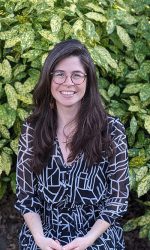
Anna Raymaker
Degree: Doctor of Nursing Practice ’21 Track: Psychiatric-Mental Health Nurse Practitioner (PMHNP)
Why did you decide to pursue a DNP degree? Picking the DNP degree was a no-brainer for me – I was really excited by the opportunity to expand my knowledge of leadership, research, and healthcare policy, and I knew that doctoral preparation is the future of nursing. My favorite part of the nursing profession is that it continually looks for ways to improve upon itself. We are never static, always learning and improving our practice. The DNP degree is part of that endless growth within the profession, and I was eager to get on board!
What was your final project? How did it make an impact on the community or with the community partner? My DNP project is Cognitive-Behavioral Therapy for Pain (CBT-P) and Mindfulness-Based Cognitive Therapy (MBCT) for Chronic Pain in Washington State Department of Corrections (WA DOC). My project occurred alongside several other DNP students’ projects to create a comprehensive chronic pain program at WA DOC. Each of our projects focused on a different aspect of the biopsychosocial nature of chronic pain. All the work produced by my colleagues and myself will enhance the quality of care provided to incarcerated individuals with chronic pain at WA DOC, which is a really exciting prospect. To my knowledge, there are very few, if any, programs like it in any state correctional system.
What are your plans after graduation? I am eager to begin working as a PMHNP in a rural community. If you know anything about me, it’s that I’m passionate about rural healthcare. I grew up in rural Vermont, and I spent several years as a nurse in rural Washington and Idaho before attending UW. I love small communities where everyone knows everyone, and it’s just a really tight-knit community where folks lean on each other for support. I’m grateful that I’ll be able to support some of these small communities with the knowledge I’ve gained through UW.
Any advice for future DNP students? I don’t have advice, but I do have words of encouragement: You’ve got this! We all feel inadequate at some point in our careers, which is perfectly normal, but don’t let that hold you back. Take a deep breath, take it all in, and appreciate the journey you’re on.
Keely Robinson
Degree: Doctor of Nursing Practice ’21 Track: Nurse Midwifery
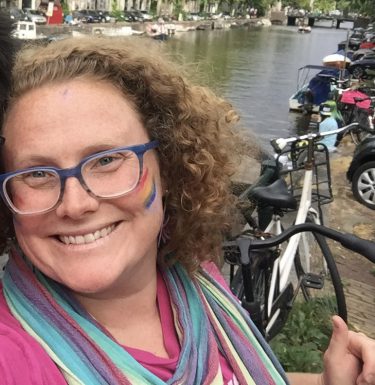
Keely Robinson
Why did you decide to pursue a DNP degree? After years of working in public health and then as a nurse, I decided I wanted to further my training in healthcare. I was excited about the DNP because it allowed me to purse this training as a midwife and an advanced practice nurse while also providing opportunities to conduct research.
What was your final project? How did it make an impact on the community or with the community partner? My final project involved interviewing a team of community health center-based nurse midwives and applying qualitative data analysis techniques to determine elements of their care that were leading to the good peripartum outcomes they are achieving. It was an excellent opportunity to draft a new model of care and to learn from such a wonderful group. The end result is a first draft of a care model that the midwives can now utilize and hone as they continue this research. I hope to continue to work with them as this project moves forward.
What are your plans after graduation? I am currently pursuing employment opportunities as a nurse-midwife in the Seattle metropolitan area. I will also continue my advocacy work with Midwives for Universal Healthcare.
Lumi Seto
Degrees: Doctor of Nursing Practice ’21 Track: Adult Gerontology Primary Care Nurse Practitioner
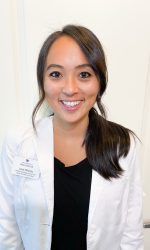
Lumi Seto
Why did you decide to pursue a DNP degree? Through my experiences as a nurse, I saw the high demand for access to safe and quality medical care in a fast paced environment. I wanted to become a leader who strived to make improvements in the health care system through evidence based medicine as well as enhance my own personal and professional skills to become a better advocate and educator for patients.
What was your final project? How did it make an impact on the community or with the community partner? Identify residents’ baseline knowledge of infection control surrounding COVID-19 and provide recommendations of evidence based strategies to help educate residents about infection control measures to reduce the number of SARS-CoV-2 transmissions within the facility. Impact- The conduction of this project in the midst of a global pandemic to address the immediate problems surrounding infection control related to SARS-CoV-2 demonstrated the commitment of the advance practice provider to public health and wellbeing of the community.
What are your plans after graduation? Pursue my interest in Gastroenterology.
Any advice for future DNP students? Grad school is a big opportunity to expand your knowledge and invest in your professional career, but you’ll find that it’s also a time to grow as a person, create relationships with your colleagues and the community, and make life-long friends!
Ashley Skluzacek
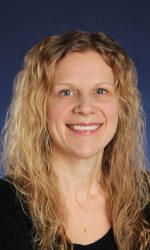
Ashley Skluzacek
Degrees: BSN ’18 Doctor of Nursing Practice ’21 Track: Nurse Midwifery
Why did you decide to pursue a DNP degree? I really wanted to enhance my healthcare training and broaden the patient populations I could serve. I loved being a community midwife, but felt I was limited in the individuals and families I could serve. Getting the DNP with a focus in midwifery will allow me to do the kind of work I love with the people that need midwives the most. It will also allow me to have better work-life balance, which is important to me and my family.
What was your final project? How did it make an impact on the community or with the community partner? How did it make an impact on the community or with the community partner? My final project was “Increasing the Use of Intermittent Auscultation for Low-Risk Laboring Patients at Swedish First Hill.” This project focused on incorporating best-practice guidelines into current fetal monitoring practices at Swedish First Hill. It required collaboration between a variety of maternity care providers and brought attention to a simple, yet underutilized, method of fetal monitoring that has been shown to be safe and to decrease operative deliveries. This has the potential to positively impact health outcomes, improve healthcare costs, and bring the focus on to patient-centered care.
What are your plans after graduation? I am seeking a full-time nurse midwife position in a hospital-based setting in the Puget Sound region. I hope to do some work abroad after I have gotten established for a few years.
Sophia Tripop Adams
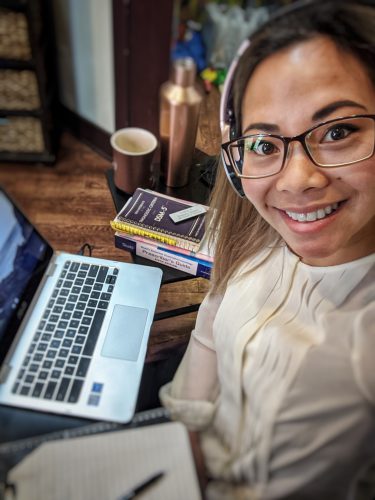
Sophia Tripop Adams
Degree: Doctor of Nursing Practice ’21 Track: Psychiatric Mental Health Nurse Practitioner
Why did you decide to pursue a DNP degree? I wanted a practice degree that also gave me the opportunity to step into leadership roles or teach if I want to one day. My time in the program has taught me that the doctoral-prepared Nurse Practitioner brings more than just advanced practice to a workplace. I am excited to step into this role as a leader and change agent.
What was your final project? How did it make an impact on the community or with the community partner? For my final project, I helped create a manual of non-pharmacological interventions for a Chronic Pain Management program in WA prisons. A non-pharmacological intervention is novel for this setting. I believe that the interventions have the potential to positively impact the lives of people beyond their chronic pain experience. The skills they will learn from these interventions will remain after their incarceration period, and I am hopeful that the downstream effects will be an overall life improvement for them.
What are your plans after graduation? I am taking some time to relax and reengage with activities and loved ones! I hope to get some traveling in (pending COVID situations) before I start working. I plan to stay in the area and hope to find a job with a good work-life balance where I can help improve the lives of underserved populations.
Any advice for future DNP students? During the program, you will learn about all the different ways that DNPs can elicit change. Take advantage of all of these opportunities! Try things that are outside your comfort zone, at least for the experience. If you find something you’re passionate about, be it advocacy or process improvement, dive in and make this the talent you bring to the table. Believe in yourself and be the change!
Hilary Vonckx
Degrees: BSN ’16; Doctor of Nursing Practice ’21 Track: Population Health & Systems Leadership
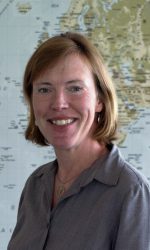
Hilary Vonckx
Why did you decide to pursue a DNP degree? I chose to do a DNP because wanted to become an expert in the field of population health. I’ve always been interested in the big picture of health – studying & understanding the impact of social determinants of health, mitigating the barriers that vulnerable populations face in accessing health resources, reducing health disparities, and looking at how policies can impact health outcomes on a large scale. I felt that a UW DNP in population health would set me up to be a nurse leader in whatever area I decide to work in.
What was your final project? How did it make an impact on the community or with the community partner? My DNP final project was Equity and Social Justice in Nurse Recruitment at Public Health – Seattle & King County (PHSKC). The PHSKC Office of Nursing recently enacted some changes to their hiring practices in order to make the recruitment process more equitable and socially just. The end goal is to honor diversity, equity, inclusion and anti-racism in recruitment, ultimately resulting in a more diverse workforce. Research shows that a diverse healthcare workforce leads to improved patient health outcomes, and the Office of Nursing wants their workforce to accurately represent the King County population which is getting more and more diverse every year. With regards to their recruitment process, the Office of Nursing wanted to know if their hiring supervisors are utilizing these practices changes, and if not, why not? I developed an evaluation plan so that their next UW DNP student can implement an evaluation and collect data/feedback from PHSKC hiring supervisors on what they like or don’t like about the new recruitment process. The findings will be put towards program improvement, and the evaluation can serve as a mechanism of continuous quality improvement so that the hiring practices changes can be sustainable.
Working with PHSKC Office of Nursing was fantastic. My agency mentors, the Chief Nursing Officer and the Healthcare Recruitment Manager, are amazing nurse leaders and I learned an enormous amount from them. The changes they are making to recruitment are ground-breaking – they’re really at the forefront of the diversity, equity and inclusion movement – so it was honor to be able to work alongside them on this project. The hiring tool kit they’ve put together can be implemented beyond nursing and public health – in any industry, really – so their work can be shared widely and have large scale impact!
What are your plans after graduation? I’m not sure what I’ll do after graduation but I know that I’m drawn to working at PHSKC after the great experience I had doing my clinical rotation and my final project there! My goal is to work with people who inspire me and who are passionate about what they do – smart, adventurous people with good senses of humor – and PHSKC has that.
Any advice for future DNP students? Take advantage of the opportunity to meet people and network and get involved in ways you never could if you weren’t a student! The beauty of being a student in an academically distinguished institution is that your status opens all sorts of doors – you can explore and question and try things out, and it’s a lot easier when you’re a student than when you’re out in the workforce. Start networking on the very first day of your program!